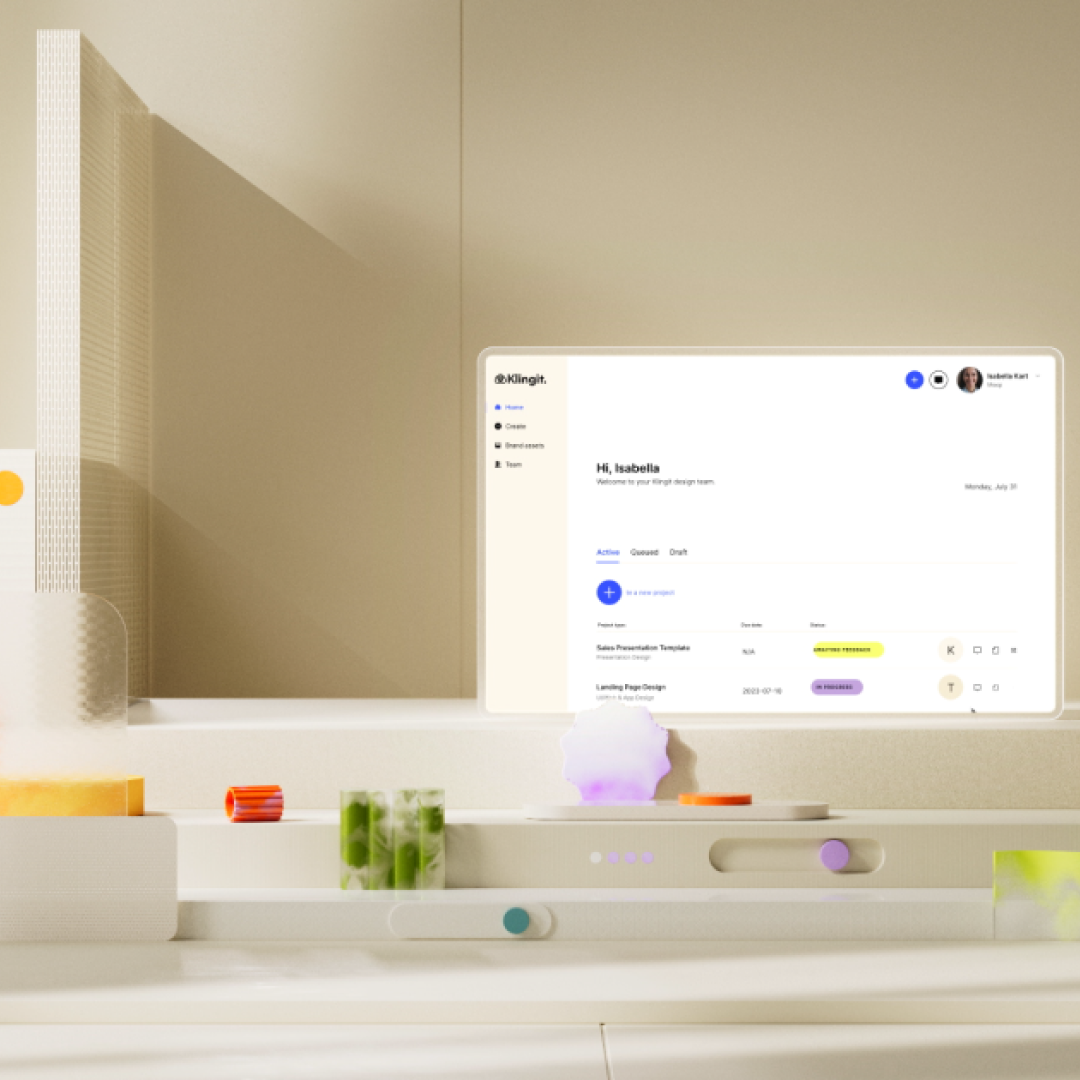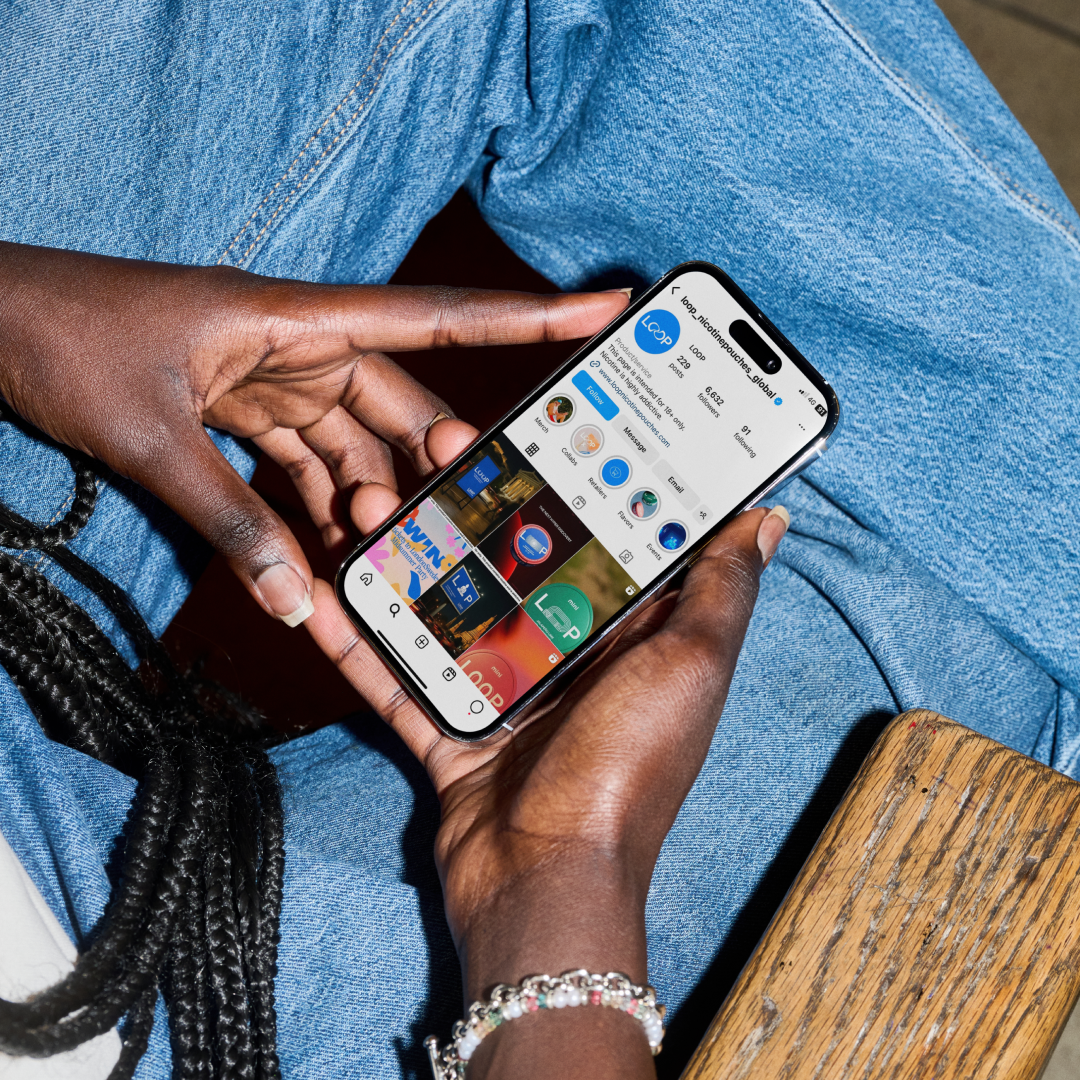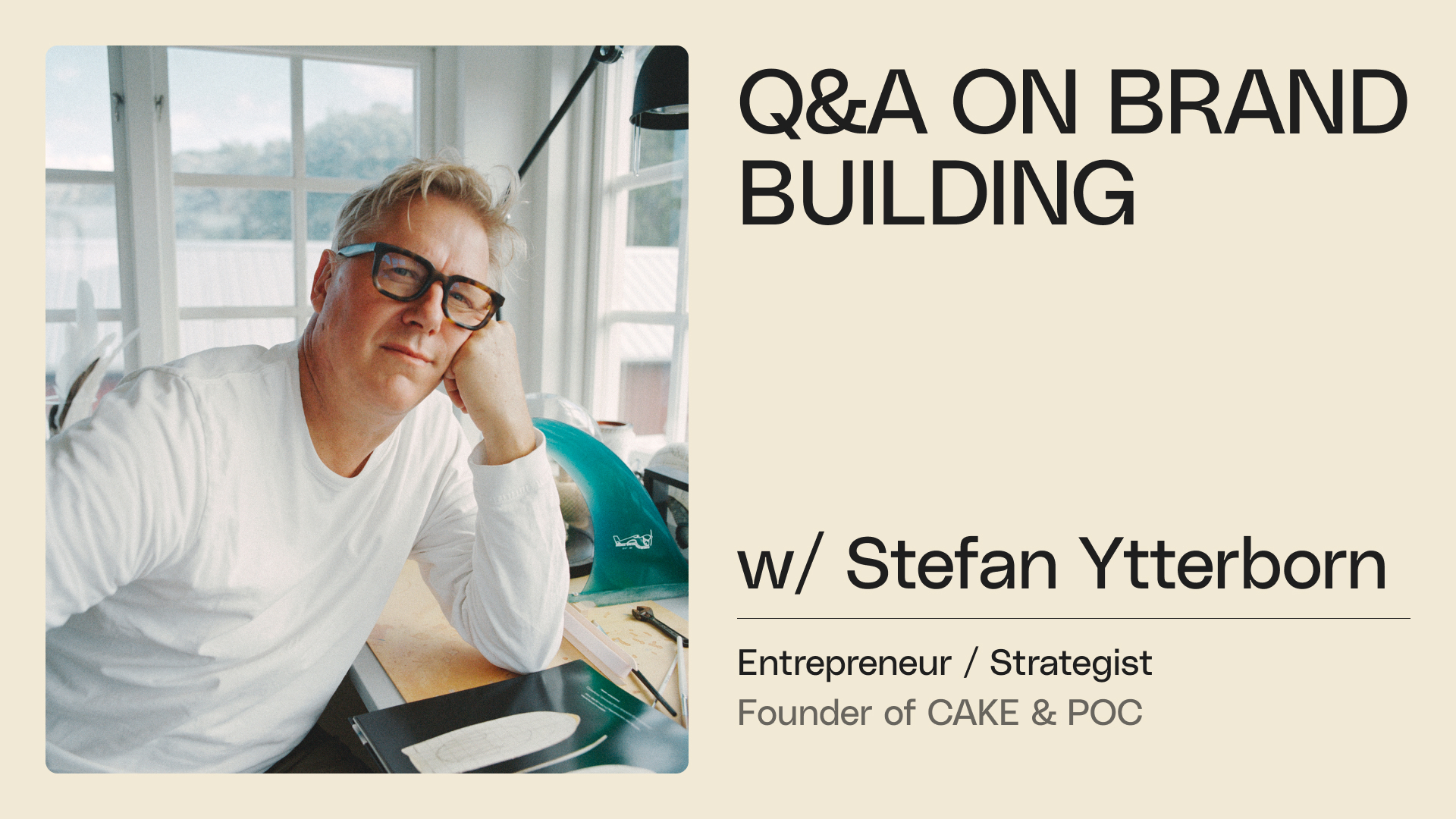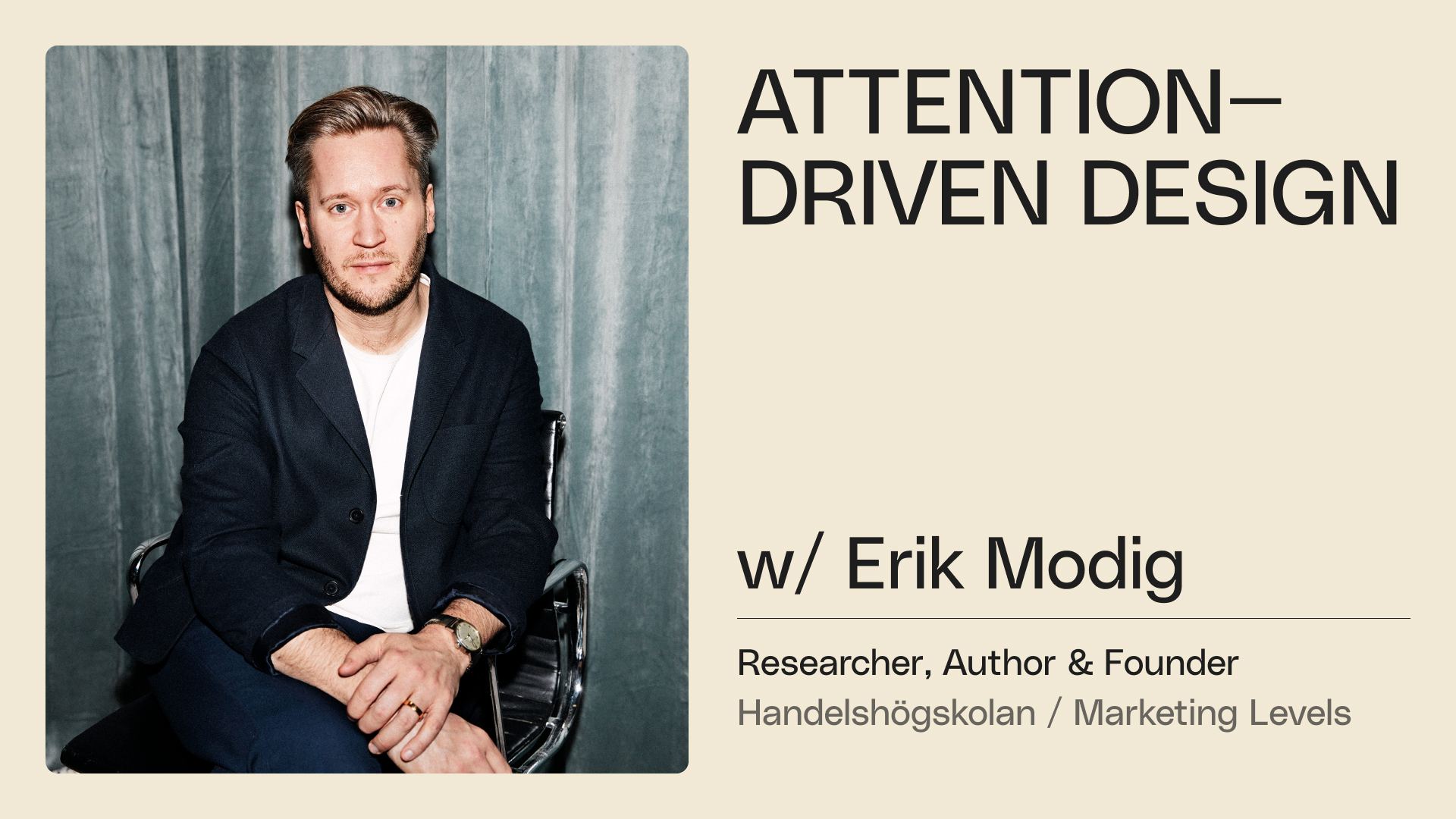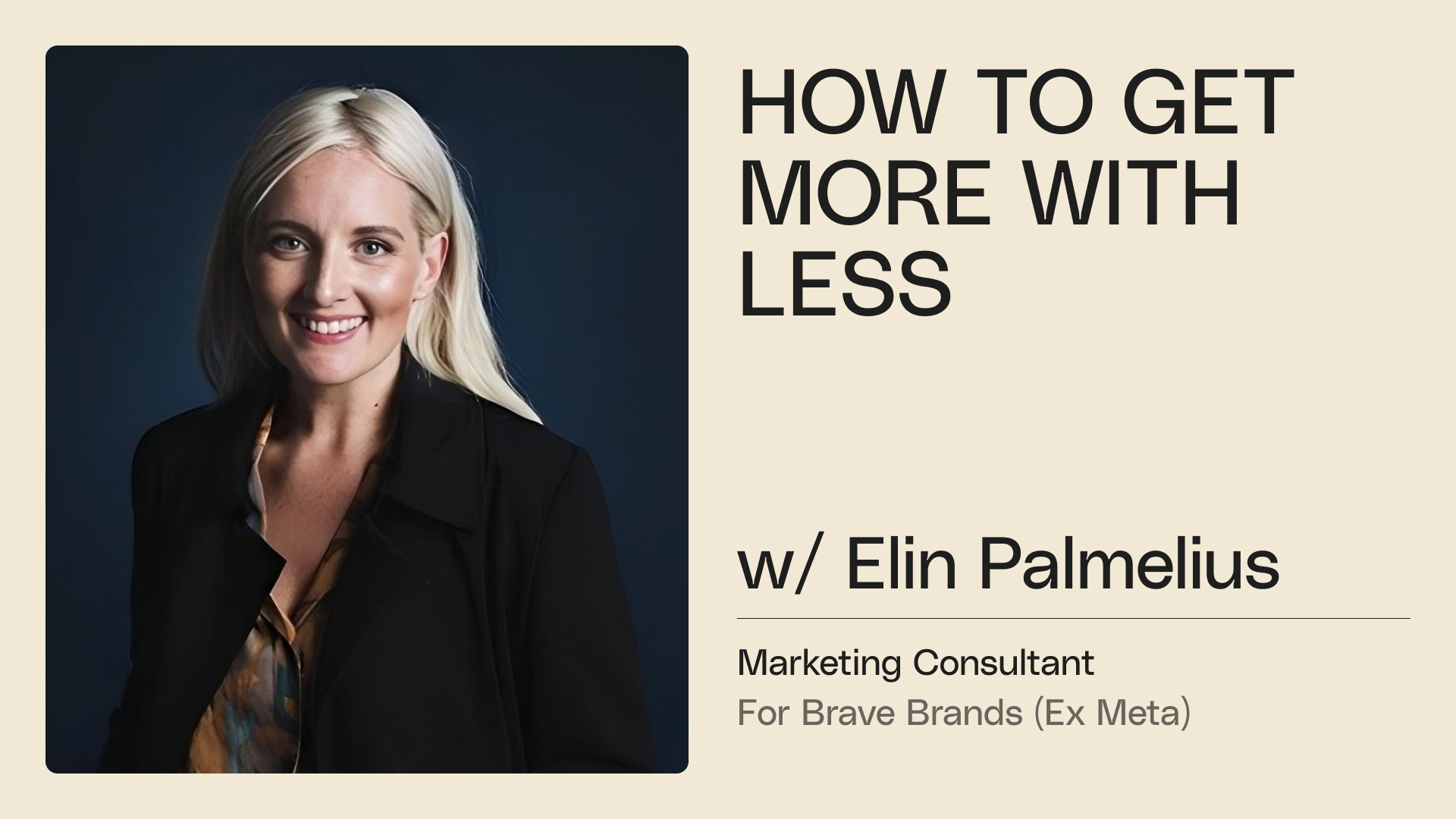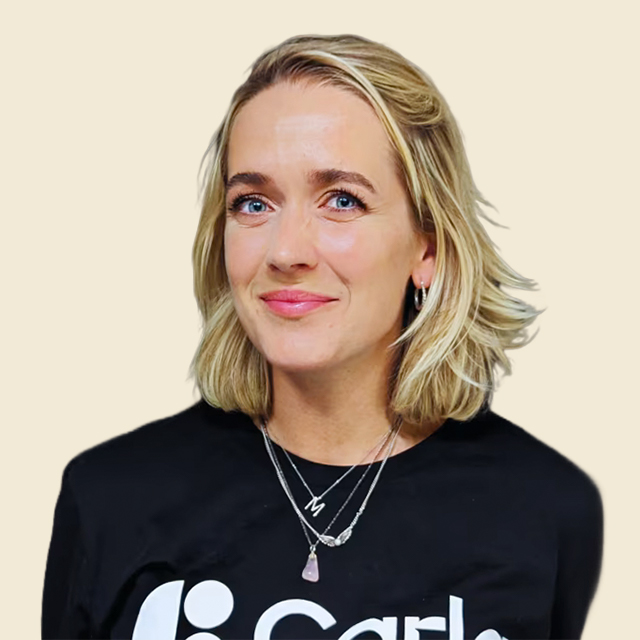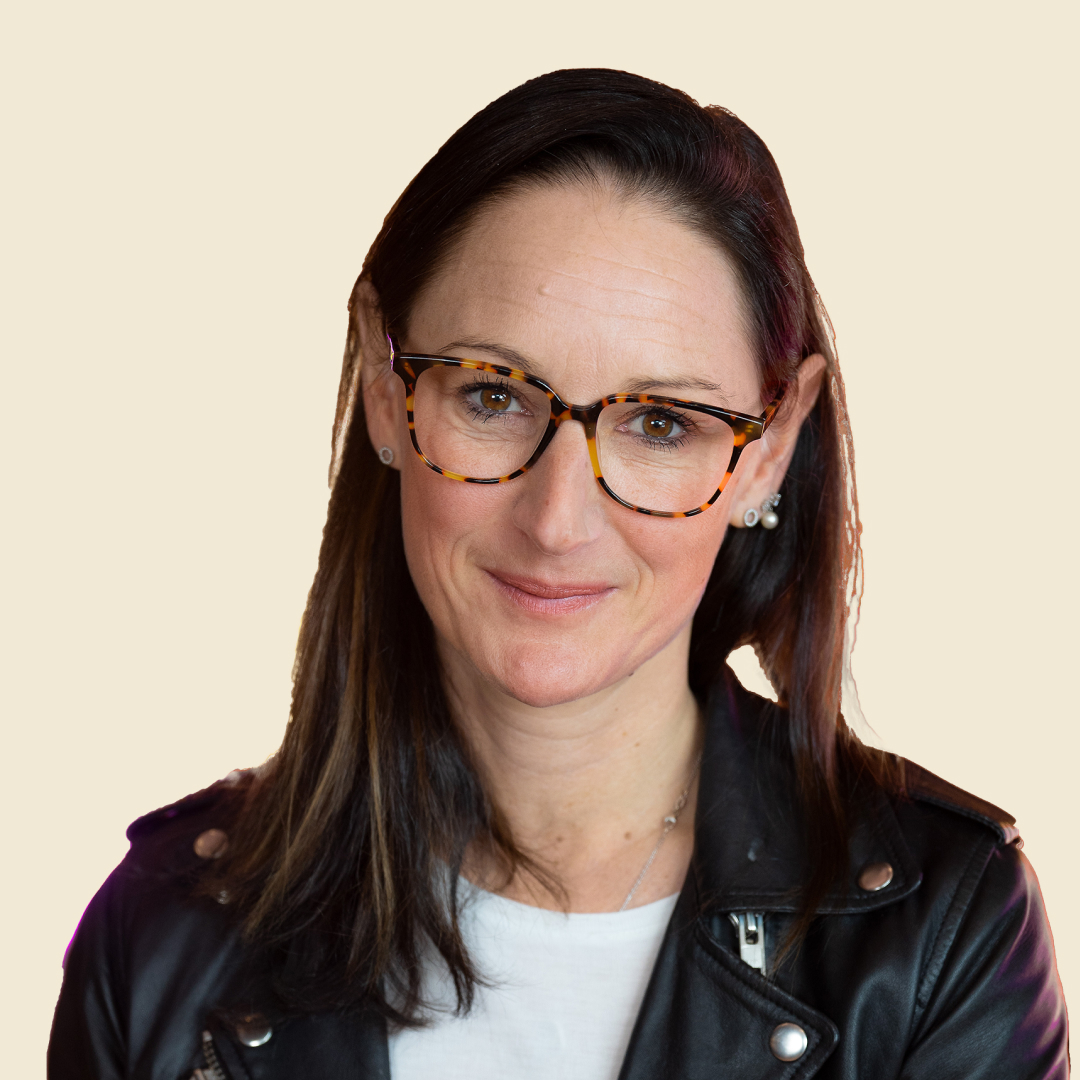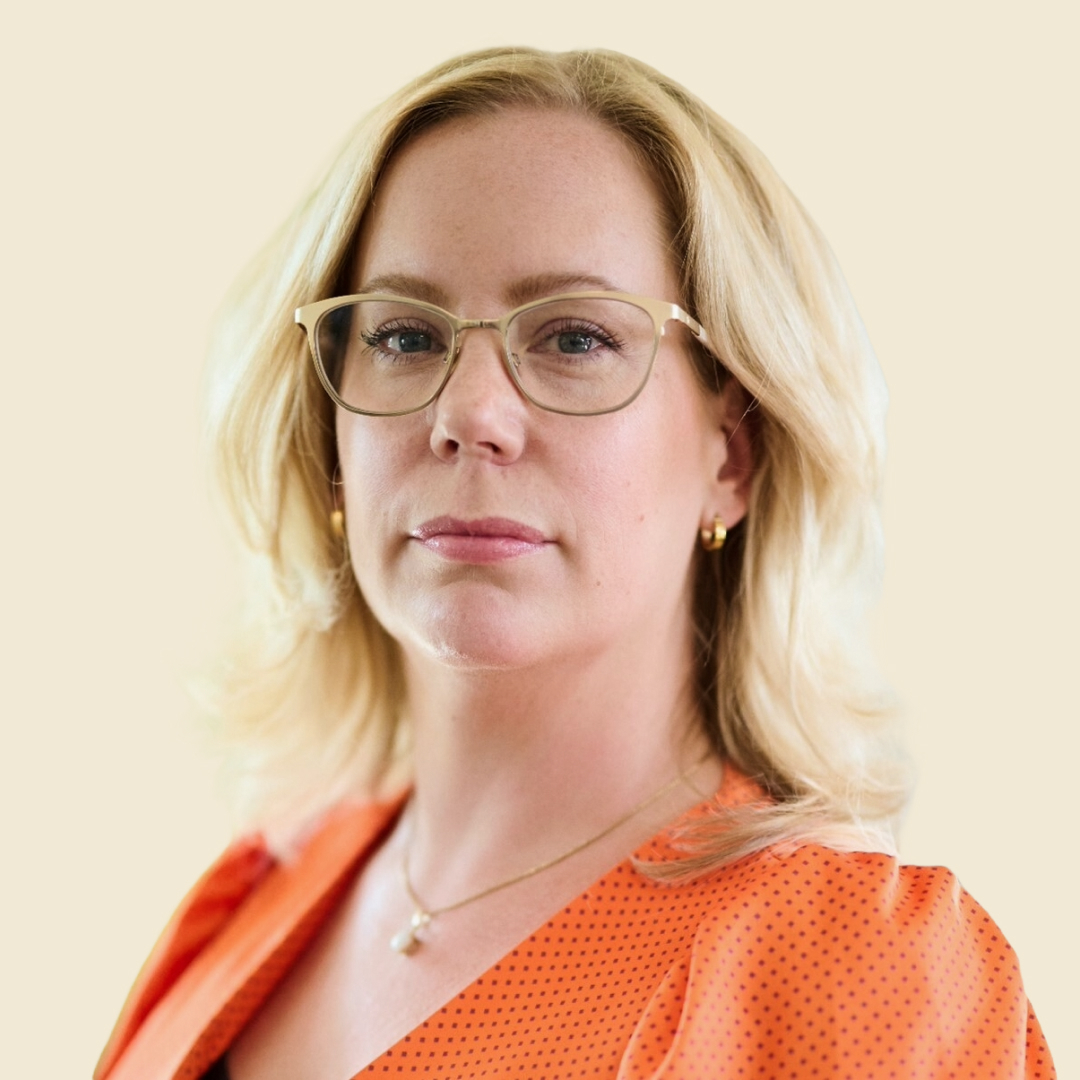Marika Baltscheffsky is the behavioral scientist who ended up in the advertising agency world and then at Google, Meds, and now Carla, where she will build up the brand and take the company to the next stage in its growth journey. She is about to wrap up her first week at Carla when we speak and is full of energy about her new job.
– You don’t understand how good our offer is. Our customers get a Wow-experience from the service we offer, which makes it easy for me to say yes to this journey, she says, pointing to the virtual Carla-blue truck in the web meeting’s background.
Carla offers buyers and sellers of electric cars a comprehensive concept where quotes, pickup, and delivery of used vehicles happen at record speed all over Sweden. The company challenges the traditional car dealerships wtih a digitized, customer-focused and agile process and has grown rapidly since it was started three years ago.

Marika Baltscheffsky’s job is to build up Carla’s brand.
– So far, we have mostly been focused on performance marketing for the cars as we sell them. Now we will also be working to build awareness and trust in us as a supplier and the advantages of our service.
As the electric car market explodes, services like Carla, which currently focus mainly on the secondary market, are expected to grow rapidly. According to Marika Baltscheffsky, innovative thinking is also required in marketing of cars as digital target groups mature and expect more – also from the communication.
– When I worked with YouTube at Google, the automotive industry was often showcased as an example of low-performing ads. Traditionally cars are marketed by showcasing them on a scenic country road, and I understand that people are getting weary of that.
All marketers today balance between performance marketing and branding. To strike the right balance, at least for Carla, requires flexibility – and sometimes changing focus very quickly.
– You have to prioritize both parts. But you may need to switch focus, and it can go from week to week, at least in a company that needs to grow fast and where everything happens quickly all the time.
“The automotive industry and agency world are both outdated.”
What are the most important channels for Carla?
– To sell cars, Blocket is the largest channel today. To build our brand, we will use a wide channel mix and also include publishers and traditional media. However, the focus will be on digital channels
Marika Baltscheffsky’s career began with studies in behavioral science at an Ivy League university in the United States and then a job at an advertising agency in New York.
– In the traditional agency world, there was a clear divide between creatives and media buyers. Those who created content were at the top of the hierarchy and rarely cared about where campaigns would be shown or, for that matter, about following up on results. When I later came to Google, there was a completely different data-driven mindset. There was a general understanding that you need to create content based on the context and the conditions that the medium provides. It might be obvious today, but it definitely wasn’t then.

Another thing that Marika Baltscheffsky brings with her from Google is the creative possibilities created by data analysis.
– Data can really become a creative springboard for those who understand how to use it properly. Much inspiration and ideas can be derived from analytics.
When we get to the future of marketing organizations, Marika Baltscheffsky is initially vague and apologizes for being a bad futurist. After a few seconds of thought, she is clear.
– It never settles. Marketing changes rapidly all the time, and it will probably always be that way since the foundation for the work we do is digital and thus very adaptable and fast-paced.
Previously, Marika Baltscheffsky has built competence in her marketing teams in-house. However, the reason for this is rather a consequence of a lack of alternatives than a preference.
– There used to be no functional alternatives, at least for the companies I have worked with. The offerings of traditional agencies are becoming more and more outdated. Now, more and more modern alternatives emerge with a different mindset, such as Klingit, for example.
This article is part of Klingit’s feature series CMO-Insights that interviews interesting people within the world of marketing and aims to share interesting storys and perspectives related to marketing and communications. The text was written by Rikard Hegelund.


